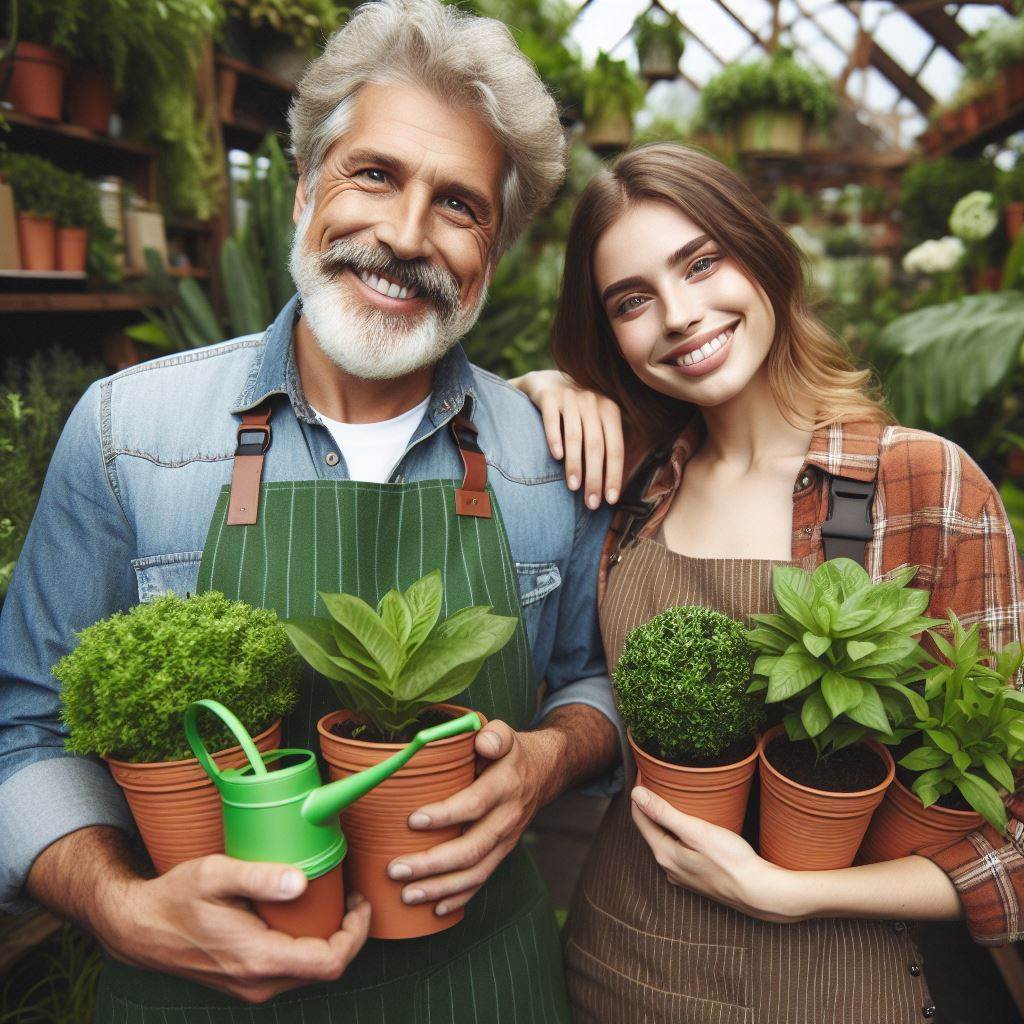Introduction
Pocket-sized herb gardens, urban farming tips, refer to compact cultivation setups tailored for urban dwellers to grow herbs in limited spaces.
These miniature gardens utilize creative planting solutions, such as vertical gardens or hanging pots, to maximize space efficiency while providing fresh herbs for culinary and medicinal purposes.
Explanation of Urban Farming and its Benefits
Urban farming encompasses various agricultural practices implemented within urban environments to produce food locally.
It includes activities such as rooftop gardens, community gardens, and hydroponic systems.
Urban farming offers several benefits to city residents, including access to fresh, nutritious produce, reduced carbon footprint due to decreased transportation of food from rural areas, and opportunities for community engagement and education on sustainable agriculture practices.
Additionally, urban farming contributes to greening urban spaces, mitigating the urban heat island effect, and promoting biodiversity.
Urban farming plays a crucial role in fostering food security, environmental sustainability, and community resilience in increasingly urbanized societies.
Why choose pocket-sized herb gardens?
Space-saving advantage
- Pocket-sized herb gardens are perfect for those with limited space in their homes or apartments.
- These gardens can easily fit on a windowsill, balcony, or small corner of a kitchen countertop.
- With vertical options available, one can maximize their space by utilizing walls and hanging baskets.
- You don’t need a big backyard to enjoy the benefits of growing your own herbs.
Convenience for urban dwellers
- Urban dwellers often face challenges when it comes to gardening due to limited space and busy lifestyles.
- Pocket-sized herb gardens provide a convenient solution by allowing easy access to fresh herbs right at home.
- No more trips to the grocery store or reliance on store-bought herbs that may be less fresh and flavorful.
- With a pocket-sized herb garden, you can simply pluck herbs as needed, ensuring maximum freshness in your meals.
Health and environmental benefits
- Growing your own herbs allows you to ensure their quality and have control over pesticide and chemical use.
- By choosing organic seeds and soil, you can create a healthier and more sustainable gardening environment.
- Having a pocket-sized herb garden encourages you to incorporate fresh herbs into your daily cooking habits.
- Herbs are packed with nutritional benefits, vitamins, antioxidants, and can enhance the flavors of your dishes.
- By reducing the need for store-bought herbs, you contribute to a lower carbon footprint and less packaging waste.
In fact, pocket-sized herb gardens offer numerous advantages for urban dwellers:
Space-saving advantage, Convenience for urban dwellers.
Health and environmental benefits
Whether you have a small apartment or a bustling city life, these gardens are a practical and rewarding solution.
Embrace the joy of growing your own herbs, elevating your cooking, and contributing to a greener environment!
Read: Kitchen Window Herbs: Grow Your Own Flavor
Getting started with pocket-sized herb gardens
Having a pocket-sized herb garden is a great way to bring the freshness of herbs into your urban environment.
Whether you live in a tiny apartment or have limited outdoor space, cultivating herbs in small containers can be a fulfilling and rewarding experience.
To help you get started, here are some tips on choosing the right container and selecting suitable herbs for your small herb garden.
Choosing the right container
1. Considerations for size and drainage
When choosing a container for your pocket-sized herb garden, size matters.
Make sure the container is large enough to accommodate the roots and the growth of the herb.
It is crucial to select a container with proper drainage holes to prevent waterlogging and root rot.
2. Options: pots, hanging baskets, window boxes
There are several options available for containers in a small herb garden.
Pots are a common choice as they are versatile and easy to move around.
Hanging baskets can utilize vertical space, making them ideal for small balconies or windows.
Window boxes can be placed outside or inside, giving you easy access to your herbs.
Suitable herbs for small spaces
1. Low-maintenance herb varieties
For a pocket-sized herb garden, it is advisable to choose low-maintenance herb varieties.
These herbs require less attention and are forgiving if you forget to water them occasionally.
Some examples include mint, rosemary, chives, and thyme.
2. Herbs suitable for indoor and outdoor growing
Select herbs that can thrive both indoors and outdoors, providing you with more options for your herb garden.
Basil, parsley, cilantro, and sage are versatile herbs that can adapt to different growing conditions.
3. Consideration of sunlight and temperature requirements
It is crucial to consider the sunlight and temperature requirements of the herbs you choose.
Some herbs, such as basil and parsley, require ample sunlight, while others like mint can tolerate partial shade.
Similarly, temperature preferences can vary among different herbs, so choose herbs that align with your climate conditions.
In short, starting a pocket-sized herb garden is an excellent way to incorporate urban farming into your lifestyle.
By choosing the right container and selecting suitable herbs, you can create a thriving herb garden even in the smallest of spaces.
Enjoy the convenience of having fresh herbs at your fingertips for culinary delights and aesthetic pleasure.
Happy gardening!
Transform Your Agribusiness
Unlock your farm's potential with expert advice tailored to your needs. Get actionable steps that drive real results.
Get StartedRead: Herbs on a Shelf: Gardening in Small Areas

Steps to create a pocket-sized herb garden
Creating a pocket-sized herb garden allows individuals in urban areas to enjoy the benefits of urban farming without the need for a large outdoor space.
By following these steps, you can successfully create your own herb garden and have a fresh supply of herbs at your fingertips.
Selecting and preparing the soil
- To start, it is crucial to choose a high-quality potting mix specifically formulated for container gardening. This will ensure your herbs receive the necessary nutrients for healthy growth.
- Adding compost to the potting mix will provide your herbs with extra nutrition. Compost is rich in organic matter and helps retain moisture in the soil.
- Adequate drainage is essential for herb gardens. Make sure your chosen container has drainage holes or add a layer of gravel at the bottom to prevent waterlogging, which can lead to root rot.
Sowing herb seeds or transplanting seedlings
- When sowing herb seeds, follow the instructions on the seed packet for proper spacing and depth. Different varieties may have specific requirements.
- If you opt for transplanting seedlings, handle them carefully to avoid damaging the delicate roots. Plant them at a depth similar to their original pot or tray.
Providing adequate water and sunlight
- Watering your herbs correctly is crucial for their overall health. Allow the top inch of soil to dry before watering again. Using a watering can or a misting bottle ensures a controlled and gentle water flow.
- Different herbs have varying sunlight requirements. Some herbs, like basil and rosemary, thrive in full sunlight, while others, like mint and parsley, prefer partial shade.
Place your herb garden in a location that suits the particular sunlight needs of your chosen herbs.
Regular maintenance and care
- Pruning is essential for healthy herb growth. Regularly trim your herbs to promote bushiness and prevent them from becoming leggy.
Pinching off the tips of the stems encourages lateral growth. - Fertilize your herbs every few weeks with a balanced organic fertilizer. This will ensure they receive the necessary nutrients for robust growth. Keep an eye out for pests and diseases.
Regularly inspect your herbs and take action at the first signs of infestation or disease.
By following these steps and providing proper care, you can create a thriving pocket-sized herb garden that will add flavor to your meals and beauty to your living space.
Enjoy the satisfaction of growing your own herbs and reap the benefits of urban farming.
Read: Container Herbs: Spice Up Your Small Garden
Gain More Insights: Indoor Gardening: Veggies & Fruits Year-Round
Enjoying the fruits of your pocket-sized herb garden
Harvesting Herbs for Culinary Purposes
1. Knowing the Optimal Time for Harvesting
Different herbs have specific peak times for harvesting to ensure the best flavor and potency.
For example, basil is best harvested before it flowers, while cilantro should be picked before it bolts.
Researching the specific harvesting times for each herb in your garden will help you maximize their taste and aroma.
2. Tips for Proper Harvesting Techniques
When harvesting herbs, it’s crucial to use the right tools and techniques to avoid damaging the plants.
Sharp scissors or pruning shears are recommended for a clean cut that promotes healthy regrowth.
Harvesting in the morning, when the plants’ essential oils are at their peak, can also enhance the flavor of your herbs.
Exploring Creative Uses for Fresh Herbs
1. Infusing Oils and Vinegars
Fresh herbs can be used to infuse oils and vinegars, adding depth and fragrance to your culinary creations.
Simply combine your favorite herbs with oil or vinegar in a clean, airtight container and let them steep for a few weeks.
The infused oils and vinegars can then be used in dressings, marinades, or as a flavorful finishing touch to dishes.
2. Making Homemade Beauty and Self-Care Products
Herbs aren’t just for cooking – they can also be used to create luxurious homemade beauty and self-care products.
From herbal soaps and bath salts to moisturizing lotions and facial masks, there are countless ways to incorporate fresh herbs into your skincare routine.
Not only are these products natural and free from harsh chemicals, but they also harness the healing properties of herbs for healthier skin and hair.
Sharing Surplus Herbs with Neighbors and Friends
If your pocket-sized herb garden is thriving and producing more herbs than you can use, why not share the bounty with others?
Giving fresh herbs to neighbors, friends, or coworkers is a thoughtful way to spread joy and encourage others to explore the joys of gardening and cooking with fresh ingredients.
Plus, sharing surplus herbs fosters a sense of community and strengthens relationships with those around you.
Read: Vertical Herb Gardens: Maximize Your Space
Conclusion
Recap of the advantages of pocket-sized herb gardens.
Urban farming provides numerous benefits such as accessibility, convenience, and cost-effectiveness.
By having a small herb garden, urban dwellers can enjoy fresh herbs right at their fingertips.
Encouragement to urban dwellers to start their own herb gardens.
Don’t let limited space deter you. Pocket-sized herb gardens are perfect for small apartments and balconies.
Even beginners can successfully grow their own herbs, enhancing their cooking and overall well-being.
Final thoughts on the benefits of urban farming and cultivating a connection with nature.
Urban farming promotes self-sufficiency and reduces the carbon footprint.
It allows urban dwellers to reconnect with nature and experience the satisfaction of growing their own food.
By embracing pocket-sized herb gardens, urbanites can foster a deeper appreciation for the natural world around them.




